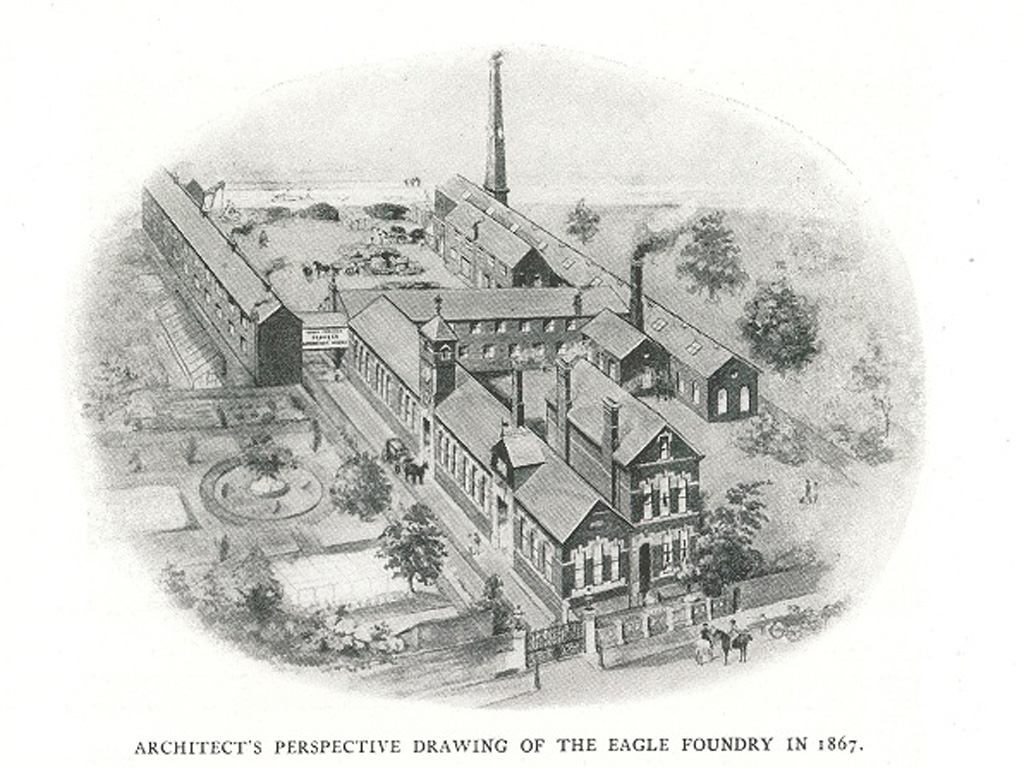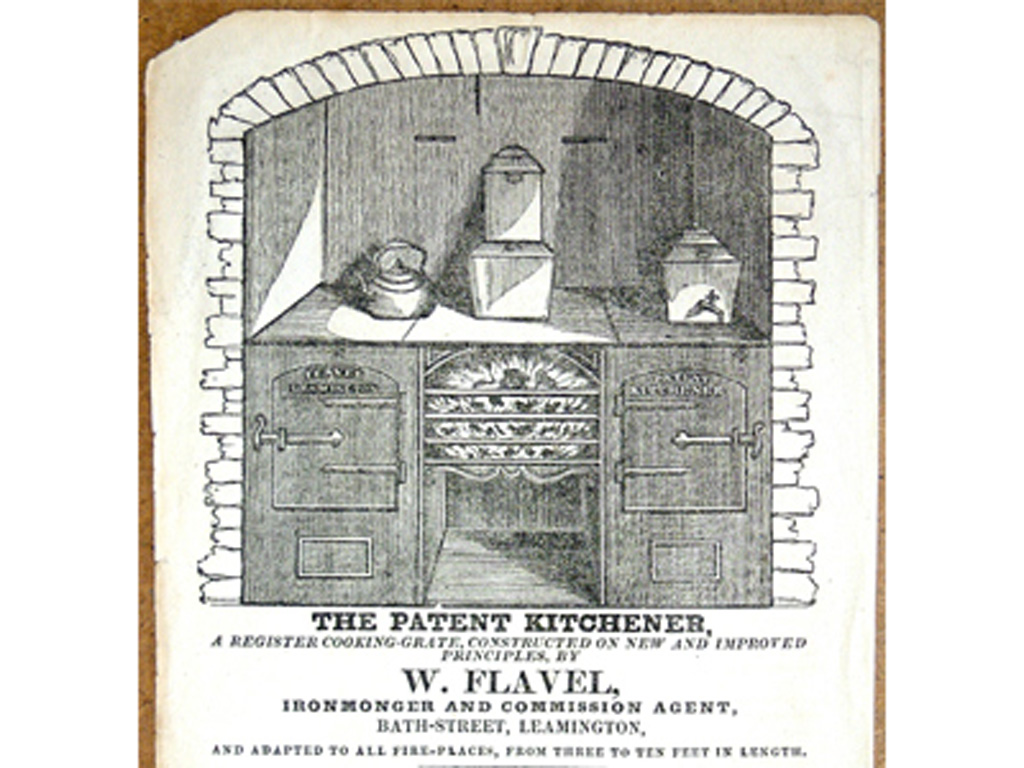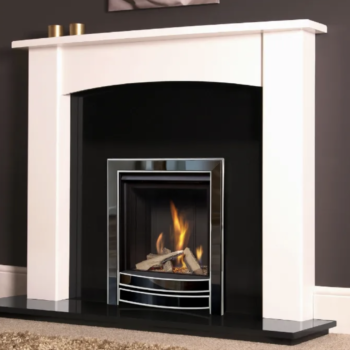Flavel today manufactures and distributes a huge range of gas fires. However, the Flavel company started out in a very different line of business.
Of Norman origin, the original Flavel family came over to England with William the Conqueror and lived at various periods in their history in London, Worcestershire, Leicestershire, and latterly Warwickshire.
In the mid-seventeenth century William Flavel had set up a business manufacturing gunpowder and armouries in Bilton, Warwickshire; a very prosperous operation largely due to the fact that we were often in conflict with any number of nations at any given time around this period.
In 1777 new premises were acquired in what was then a small, but rapidly growing village called Leamington, a place that would ultimately become a prosperous health resort in Regency days. Among the many inventions that were patented by the company was a vapour bath; made initially for members of the Russian aristocracy.
In 1833 the business was re-located to its present site, the Eagle Foundry, in order to take advantage of the transport benefits offered by the construction of the Grand Junction Canal which ran alongside the premises, and the branch line which was connected to the factory linking it with the Great Western Railway.

Hitherto, all transportation had been conducted by horse-drawn wagons, a hazardous business where a muzzle loader at half-cock would always have been at the ready. In it’s time the Eagle Foundry was the largest manufactory of its kind in the world and over 100 employees produced more than 50 kitchen ranges of various sizes, suitable for either a cottage or a palace, each week.
It is worth noting that in the early 1800’s the Eagle Foundry commanded an area that covered over 40% of the village of Leamington and that the subsequent development and prosperity of the town owes much to the foresight and endeavours of the Flavel family.
It was, however, the “Patent Kitchener” which brought the company to real prominence. The first real cooking appliance to supersede the open ‘fire and spit’, the Kitchener was displayed at the Great Exhibition held at “Crystal Palace” in 1851. Some 19,000 exhibitors were represented at the Exhibition but only 17 Prize Medals with special approbation were granted and Flavel’s Kitchener received one of these; just one of numerous subsequent awards that the Company received right up to the time of the Great Paris Exhibition of 1937.

Flavel continued to manufacture cast-iron cooking appliances well into the 1930’s and were pioneers in introducing the first appliance to be finished throughout in porcelain enamel in 1936, resulting in a further avalanche of awards from Exhibitions all over the world.
Quality had always been a major priority for the Company and it was not unusual for the firm to receive testimonials similar to this one from an architect in 1842 –
” I have recommended your Cooking Range effectually in several instances, as lately to a Colonel Barker and Mr. Robinson, and there are now two gentlemen for whom I am superintending the erection of houses, each of whom will order one of the 6 feet Kitcheners. I seek neither fee nor reward for so doing, for I think very highly of them.”
Flavel’s was a privately owned Company until it was converted into a Limited Liability Company in 1902, but the Flavel family continued to oversee it’s development and expansion as Directors up until 1931.
Although it was known primarily as a manufacturer of cooking appliances the Flavel factories were also commissioned at various times to assist the country at times of war, and cannonballs produced by the Company were fired at both Trafalgar and Waterloo. During both the Great War and the Second World War, the factories were used for the production of munitions and armoury.
In more peaceful times the skills of the workforce enabled them to produce ornate and highly ornamental cast iron fireplaces, firebacks and grates, many of them being specifically designed and cast for the great houses of the English aristocracy. Flavel was always recognized as being an innovative company and having had a relatively minor presence in the gas fire market in 1965 they introduced the first ever furniture fire with a wood surround – the Debonair.
Over the next 6 years this gas fire totally revolutionized the market and a phenomenal one and a half million were sold; a success that it is most unlikely to ever be repeated.
In more recent times the company continued to trade as Sidney Flavel and Co. until 1974 when it was absorbed into the Glynwed Group which was subsequently broken up in 1998 and the Flavel brand was transferred to Agafoodservice Group.
The heating sector of the market held little interest for Agafoodservices and the Flavel brand and property rights for all gas fires was acquired by BFM Europe (formally CFM Europe) in 2002, since which time the Flavel name has been resurrected and regenerated and has become recognized as a major and highly significant supplier of gas products to the heating market.




